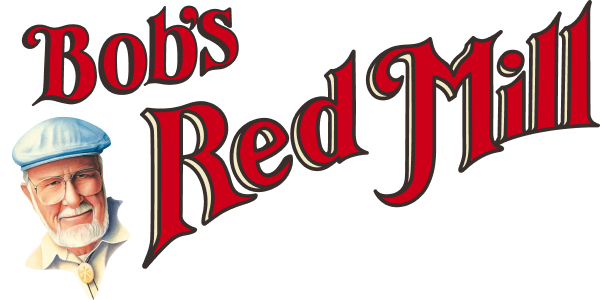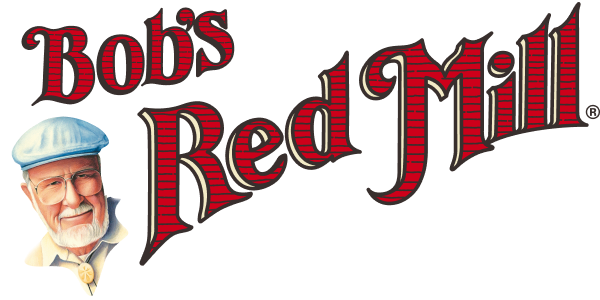


 Similarly, prebiotics are just as essential to a healthy gut. For probiotics to survive in the body, they need a healthy amount of prebiotics to use as an energy source. Think of prebiotics as food (or fuel) for probiotics. Maintaining the right amount of both prebiotics and probiotics will ensure that your gut has enough healthy bacteria to fight off any harmful bacteria that may enter your body.
Now that you understand the critical role of prebiotics and probiotics in the digestive system, let's take a look at some powerful, prebiotic and probiotic-rich foods that can help heal the gut and keep your body running at top performance.
Similarly, prebiotics are just as essential to a healthy gut. For probiotics to survive in the body, they need a healthy amount of prebiotics to use as an energy source. Think of prebiotics as food (or fuel) for probiotics. Maintaining the right amount of both prebiotics and probiotics will ensure that your gut has enough healthy bacteria to fight off any harmful bacteria that may enter your body.
Now that you understand the critical role of prebiotics and probiotics in the digestive system, let's take a look at some powerful, prebiotic and probiotic-rich foods that can help heal the gut and keep your body running at top performance.
 A type of fermented cabbage, sauerkraut is often praised for its presumed health benefits, one of which is supporting digestive health! To make fresh sauerkraut, cabbage has to be properly fermented. This process works to convert the natural sugars in the cabbage into carbon dioxide and organic acids, which then produce live bacteria. This bacteria is known as probiotics. These probiotics give the sauerkraut more nutritional benefits than traditional cabbage, and work to replenish your body's intake of healthy gut bacteria, as well as combat inflammation. Aside from probiotics, sauerkraut also carries special enzymes that work to help your body break food down easier, allowing you to absorb more nutrients.
If you're not a fan of eating sauerkraut plain, there are a bunch of delicious recipes you can incorporate it into. This delicious Sauerkraut Rye Bread is one of our favorites and is the perfect loaf to keep on hand at all times!
A type of fermented cabbage, sauerkraut is often praised for its presumed health benefits, one of which is supporting digestive health! To make fresh sauerkraut, cabbage has to be properly fermented. This process works to convert the natural sugars in the cabbage into carbon dioxide and organic acids, which then produce live bacteria. This bacteria is known as probiotics. These probiotics give the sauerkraut more nutritional benefits than traditional cabbage, and work to replenish your body's intake of healthy gut bacteria, as well as combat inflammation. Aside from probiotics, sauerkraut also carries special enzymes that work to help your body break food down easier, allowing you to absorb more nutrients.
If you're not a fan of eating sauerkraut plain, there are a bunch of delicious recipes you can incorporate it into. This delicious Sauerkraut Rye Bread is one of our favorites and is the perfect loaf to keep on hand at all times!
 Kimchi is a traditional food that is known as being a nutritional powerhouse. With a complex, strong flavor, kimchi is made with vegetables like cabbage and radishes, garlic, chili peppers, ginger, salt and fish. Created as a way to preserve vegetables during the colder months, it's a staple of Asian cooking. Spicy and sour, this vegetable-based dish contains vitamins, fiber and minerals. Good bacteria like Lactobacillus is produced during the fermentation process of kimchi and may have positive effects on the gut. Also known for its low-calorie content, 150 grams of kimchi only contains about 40 calories, making it a great dish to add flavor to your meal without weighing it down.
Kimchi is a traditional food that is known as being a nutritional powerhouse. With a complex, strong flavor, kimchi is made with vegetables like cabbage and radishes, garlic, chili peppers, ginger, salt and fish. Created as a way to preserve vegetables during the colder months, it's a staple of Asian cooking. Spicy and sour, this vegetable-based dish contains vitamins, fiber and minerals. Good bacteria like Lactobacillus is produced during the fermentation process of kimchi and may have positive effects on the gut. Also known for its low-calorie content, 150 grams of kimchi only contains about 40 calories, making it a great dish to add flavor to your meal without weighing it down.
 Tempeh is a vegan protein that can be used in a variety of dishes. Fermented, high in protein and plant-based, tempeh is commonly made of soybeans. Unlike other fermented foods, tempeh cannot be eaten raw. However, even when cooked, tempeh is packed with prebiotics that contribute to gut health. We love combining whole-grain brown rice with tempeh for a prebiotic/probiotic heart-healthy meal.
Tempeh is a vegan protein that can be used in a variety of dishes. Fermented, high in protein and plant-based, tempeh is commonly made of soybeans. Unlike other fermented foods, tempeh cannot be eaten raw. However, even when cooked, tempeh is packed with prebiotics that contribute to gut health. We love combining whole-grain brown rice with tempeh for a prebiotic/probiotic heart-healthy meal.
 If you're searching for something that you can drink to improve your gut health, then kombucha is the drink for you! A fermented tea, this drink is full of healthy probiotic bacteria. It's delicious when enjoyed on its own or when combined with fruits. Kombucha can even be used in recipes like this delightful Barley and Kombucha Crepe, to add a unique flavor and a boost of nutrients.
If you're searching for something that you can drink to improve your gut health, then kombucha is the drink for you! A fermented tea, this drink is full of healthy probiotic bacteria. It's delicious when enjoyed on its own or when combined with fruits. Kombucha can even be used in recipes like this delightful Barley and Kombucha Crepe, to add a unique flavor and a boost of nutrients.
 Fresh ginger is an excellent ingredient that can help to stimulate the digestive system and keep your gut working how it should. Often praised for its anti-inflammatory properties, adding ginger to soups, teas and even smoothies is a great way to increase your intake of digestive foods.
Fresh ginger is an excellent ingredient that can help to stimulate the digestive system and keep your gut working how it should. Often praised for its anti-inflammatory properties, adding ginger to soups, teas and even smoothies is a great way to increase your intake of digestive foods.